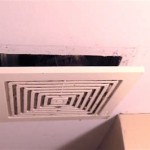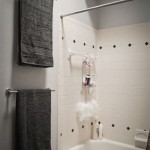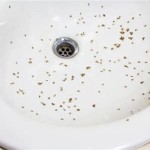What Material Is Used For Bathroom Countertops
Bathroom countertops are a key element of the bathroom design, influencing both its functionality and aesthetics. Choosing the right material is crucial as it needs to withstand moisture, heat, and frequent use, while maintaining its beauty and durability. Numerous materials are commonly used for bathroom countertops, each possessing distinct advantages and disadvantages. This article explores some of the most popular options, considering their durability, maintenance requirements, and overall cost.
Natural Stone Countertops
Natural stone, including granite, marble, and quartz, remains a popular choice for bathroom countertops. These materials offer unmatched beauty and durability.
Granite is extremely hard and resistant to scratches and stains, making it highly durable. Its unique veining patterns add a touch of elegance to any bathroom.
Marble, while equally stunning, is more porous and susceptible to scratches and stains. It requires regular sealing to protect it from damage. Nonetheless, its timeless beauty and luxurious feel remain highly sought after.
Quartz, though not truly natural, is engineered from natural quartz crystals combined with resin and pigments. It offers the durability of granite with lower maintenance requirements and a wide variety of colors and patterns.
While offering many advantages, natural stone countertops can be expensive. Fabrication and installation costs can further add to the overall expense. Regular maintenance, including sealing and cleaning, is essential for their long-term beauty and durability.
Engineered Stone Countertops
Engineered stone countertops, such as quartz and porcelain, are manufactured alternatives to natural stone. These materials offer durability, low maintenance, and a wide range of design options.
Quartz, as discussed earlier, is a popular engineered stone known for its durability and versatility. It's non-porous, making it resistant to stains and bacteria, ideal for bathrooms.
Porcelain countertops are increasingly popular, offering a sleek, modern appearance with high durability and easy maintenance. They are heat and scratch-resistant, and their non-porous nature makes them stain-proof.
Engineered stone countertops, while more affordable than natural stone, still come with a relatively high price tag. Despite their low maintenance requirements, they may require occasional cleaning with specialized cleaners to maintain their shine.
Solid Surface Countertops
Solid surface countertops, like Corian, consist of a mixture of acrylic resin and mineral fillers. These materials offer a seamless, non-porous surface that is resistant to stains and bacteria.
Solid surface countertops are highly versatile and can be molded into various shapes and designs, making them suitable for even complex bathroom layouts. They are also relatively easy to repair, minimizing the impact of minor scratches or chips.
Solid surface countertops are more affordable than natural or engineered stone, but their durability may not match the latter. They can be susceptible to heat damage and may require occasional polishing to maintain their shine.
Other Materials
Beyond these common options, other materials are used for bathroom countertops, each offering unique benefits.
Tile countertops, particularly ceramic or porcelain tiles, are a cost-effective option with a wide range of colors and patterns. They are durable and easy to clean but require careful grouting and sealing to prevent moisture penetration.
Wood countertops can add a rustic charm to a bathroom. However, wood is susceptible to water damage, requiring careful sealing and maintenance.
Concrete countertops offer a modern and industrial aesthetic. While durable, they require specialized fabrication and finishing, making them a more expensive option.
Choosing the right material for bathroom countertops depends on individual preferences and budget. Consider the material's durability, maintenance requirements, aesthetic appeal, and cost before making a decision. Each material offers unique advantages and disadvantages, ensuring a suitable option for every bathroom design and style.

7 Countertop Materials For Bathrooms

7 Sy Bathroom Countertop Options To Choose From

What Are The Best Surfaces For Bathroom Countertops
:strip_icc()/101963997-428f882f0c604f7cb5e07f81516e96d9.jpg?strip=all)
18 Luxurious Bathroom Countertop Ideas For All Budgets

Best Types Of Bathroom Countertops Modernize
What Are The Best Materials For Bathroom Vanity Countertops Toulmin Kitchen Bath Custom Cabinets Kitchens And Design Remodeling In Tuscaloosa Birmingham Alabama

7 Types Of Countertops For Bathrooms

What Material Should My Modern Bathroom Countertops Be Metropolitan Bath Tile

6 Materials Ideal For The Bathroom Countertop Architectural Digest
:strip_icc()/102130266-3174ac7d31314c7abfc80a1b65a11dd6.jpg?strip=all)
18 Luxurious Bathroom Countertop Ideas For All Budgets
Related Posts







